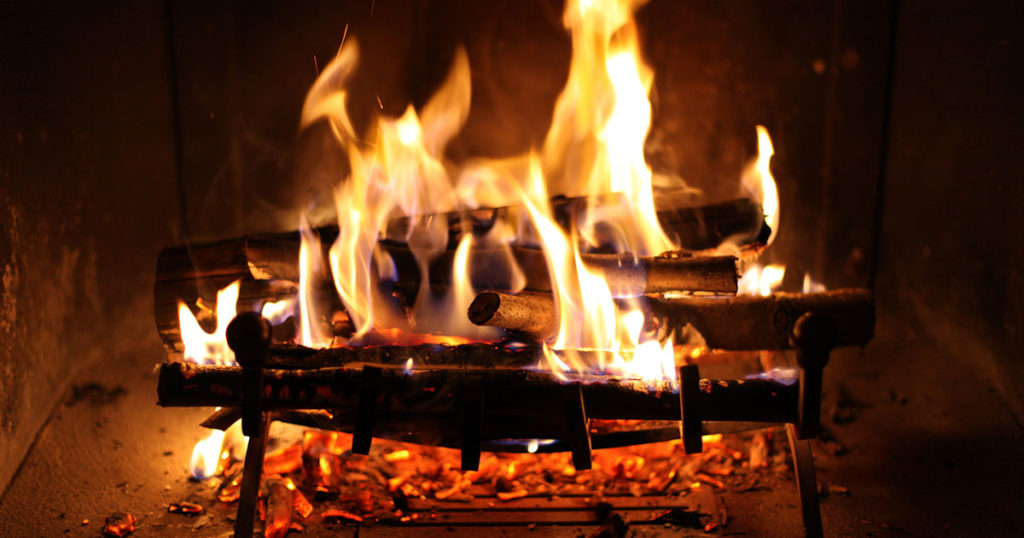
I felt the winter breaking up in me, and if I had been at home, I should have tried to write poetry.
—Henry David Thoreau, Journal, December 26, 1854
Violent socks,
my feet were
two fish made
of wool,
two long sharks
sea-blue, shot
through
by one golden thread …
beauty is twice
beauty
and what is good is doubly
good
when it is a matter of two socks
made of wool
in winter.
—Pablo Neruda, “Ode to My Socks” (tr. by Robert Bly), 1956
Sitting out in the backyard—afternoon, a white half-moon—and your fruitcake inside—me, not the moon, though that speaks for where it should aim at, in its excellence. … As you see, I opened it like a letter.
—Eudora Welty to Emily and William Maxwell, December 21, 1955
“If spring never comes, does that mean summer won’t either? How will the crops grow when the fields are covered with snow?” …
“Don’t worry. It’s no good overthinking this. Calendars are just scraps of paper. Be patient. It will all work itself out.” The former hatmaker seemed to be reassuring himself as much as the rest of us. But we nodded in agreement.
In the end, however, it was the old woman’s prediction that turned out to be accurate. No matter how long we waited, spring never came, and we lay buried under the snow along with the ashes of the calendars.
—Yoko Ogawa, The Memory Police (tr. by Stephen Snyder), 2019
J. accused me of always bagging his books as soon as he had begun to read them. I said: ‘It’s like fishing. I see you’ve got a bite. I want your line. I want to pull it in.’
—Katherine Mansfield, January 30, 1921
—The language in which we are speaking is his before it is mine. How different are the words home, Christ, ale, master, on his lips and on mine! I cannot speak or write these words without unrest of spirit. His language, so familiar and so foreign, will always be for me an acquired speech. I have not made or accepted its words. My voice holds them at bay. My soul frets in the shadow of his language.
—James Joyce, A Portrait of the Artist as a Young Man, 1916
Dangerous pavements.
But I face the ice this year
With my father’s stick.
—Seamus Heaney, “I.I.87,” Seeing Things, 1991
What a pity we can’t make a cup of Ovaltine, was her last conscious thought. Life’s problems are often eased by hot milky drinks.
—Barbara Pym, No Fond Return of Love, 1961
And because there was a dome, and the cold was so absolute, he came inevitably back to the crematorium, that rounded top and its huge circular floor, the feet of stiffs sticking through the curtains, the blasting heat underneath where they were disposed of, the killing cold when you returned and thought your head was being split by an ax. But that dome never opened. You could pass through only as smoke.
This Mount Palomar coldness was not to be compared to the cold of the death house. Here the living heavens looked as if they would take you in.
—Saul Bellow, The Dean’s December, 1982
Slept sinfully.
—Leo Tolstoy, December 9, 1888
Medieval colour perception had very different biases to our own. Description of colour is now based on three elements—hue (the name of the colour, ‘green’), brightness or value (reflecting the amount of black or white added to it) and saturation (its purity)—and further factors such as lustre, texture, transparency or opacity. We place much emphasis on hue, but medieval analysis focused on the relative brightness of the colour, or the strength of its saturation, and was more vague about hue. There was a closer association between a bright red and a bright blue than between a pale red and a bright red.
—C. M. Woolgar, The Senses in Late Medieval England, 2006
Scientists and crew lined the balconies of each ship, gripping the ice-crusted banisters as they peered across the void. They could see the smiling faces of their colleagues just feet away—but they were two time zones apart.
At the North Pole, 24 time zones collide at a single point, rendering them meaningless. It’s simultaneously all of Earth’s time zones and none of them. There are no boundaries of any kind in this abyss, in part because there is no land and no people. The sun rises and sets just once per year, so “time of day” is irrelevant as well.
—Katie Weeman, “Time Has No Meaning at the North Pole,” Scientific American March 13, 2020
[A]ll the workings of a bank should be as visible as the wheels and mainspring of a glass-enclosed French clock. … If anyone had money in a bank, it seemed that he had an inalienable right to see the bankers sweating over it.
—John P. Marquand, Point of No Return, 1947
On Celtic coasts it is the seventh wave that is seen coming like a king out of the grey, cold sea. The Cape tradition, however, is no half-real, half-mystical fancy, but the truth itself. Great waves do indeed approach this beach by threes. Again and again have I watched three giants roll in one after the other out of the Atlantic, cross the outer bar, break, form again, and follow each other in to fulfilment and destruction on this solitary beach.
—Henry Beston, The Outermost House, 1928
Sure on this shining night
Of star made shadows round,
Kindness must watch for me
This side the ground.
The late year lies down the north.
All is healed, all is health.
—James Agee, “Sure on This Shining Night,” Permit Me Voyage, 1934
[L]ong is the way
And hard, that out of hell leads up to light …
—John Milton, Book II, Paradise Lost, 1667

